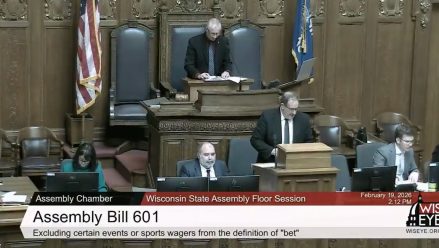On back-to-back days, the Michigan Gaming Control Board and the Maryland Lottery and Gaming Control Agency filed opinions with the Commodity Futures Trading Commission regarding the sports event contracts being offered by Kalshi and potentially other prediction market operators.
The letters were filed on Tuesday and Wednesday, respectively, as part of a public comment period for a scheduled CFTC roundtable discussion that was to take place Wednesday but was abruptly canceled last week.
Kalshi, through its successful filings to stop temporary restraining orders in Nevada and New Jersey, has argued that it is not bound by state regulatory framework as it falls under the federal auspices of the CFTC. Courts rulings have so far allowed Kalshi to continue offering sports markets in Nevada and New Jersey and there has been no indication if the CFTC will render a clarifying opinion.
A closer look
The Michigan letter argues that Kalshi is violating the state Lawful Sports Betting Act and by “operating outside the boundaries of the legal framework established by LSBA, places Michigan citizens at undue risk.”
Michigan, while acknowledging prediction markets’ regulation by the CFTC, cited several possible means of harm to citizens’ “personal information, and their funds” and financial impacts for commercial and tribal gambling operators.
Michigan has not joined the six states that remitted cease-and-desist letters to Kalshi ordering it top stop offering sports event contracts within their boundaries. These states may soon have to deal with Sporttrade, which also wants to offers sports markets nationally.
From the Michigan filing:
“Finally, the MGCB is concerned that the promotion of sporting event contracts as an investment vehicle is antithetical to the agency’s stance and foundational message on responsible gaming — that gambling in any form is for entertainment purposes only. The notion that internet sports betting can and should be pursued as a viable means of financial gain undermines this position and increases the risk of irresponsible and problem gambling behavior.”
The Maryland letter was not immediately available for download on the CFTC site.
Gaming boards in Illinois and Pennsylvania filed letters with the CFTC last week.
Michigan’s manuever continues a week and spring of state regulators attempting to firewall a $2.9 billion gambling market from unregulated and taxed entities. The MGCB has issued 32 cease-and-desist orders to domestic and foreign online sportsbooks and casinos since March, including two Panama-based sports wagering companies this week.





